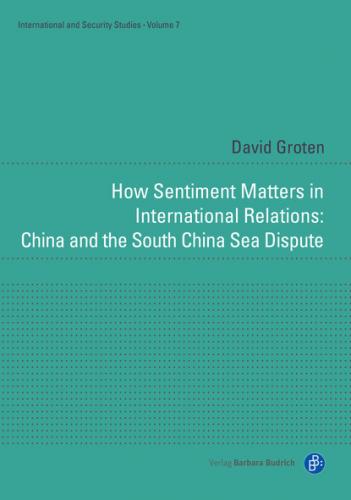2.5 Summary Analytical and Theoretical Chapter
3. The South China Sea Dispute
3.1 Historical Background and Sources of Conflict
3.2 Official Position and Claims by the PRC
3.3 Official Position and Claims by the Philippines
3.4 Official Position by the U.S.
3.5 Official Position by the ASEAN
4. The Role of (Dis)Respect in FPTT Discourses on External Stakeholders’ SCS Conduct
4.1.2 Shift in Identity Conceptions
4.1.4 Shift in Status Conceptions
4.2.1 General Perception of Sino-U.S. Relations
4.2.2 General Perception of the U.S. Role in Southeast Asia
4.2.3 General Assessment of the ‘Return to Asia’
4.2.4 General Perception of U.S. Conduct in the South China Sea…. 120
4.2.5 Manifestations of (Dis)Respect in Discourses on U.S. Conduct (Criterion A1)
4.2.6 Summary Hypothesis II: Sub-Case I
4.3.1 U.S.-Philippine Relations
4.3.2 Sino-Philippine Relations
4.3.3 Outlook: Sino-Philippine Relations under Duterte
4.3.4 Manifestations of (Dis)Respect in Discourses on Philippine Conduct (Criterion A2)
4.4.1 Main Objective I: Re-establishment of Respect & Self-worth
4.4.2 Main Objective II: Education of the Offender
4.4.3 Recommendations/Preferences in Response to External Conduct (Criterion C)
4.4.4 Responsibility of the Offender (Criterion B)
4.4.5 Objectives of Retaliation (Criterion D)
4.4.6 Plausibility of Causal Mechanism
4.5 Summary of the Core Findings
5. Implications & Policy Recommendations
5.2 Empirical Implications & Country-Specific Recommendations
5.2.1 Recommendations to the PRC
5.2.2 Recommendations to the Philippines
5.2.3 Recommendations to the United States
5.3 General Recommendations and Outlook
7.1 The Category System
8.1 Secondary Sources
8.2 Primary and Government Sources
List of Tables
